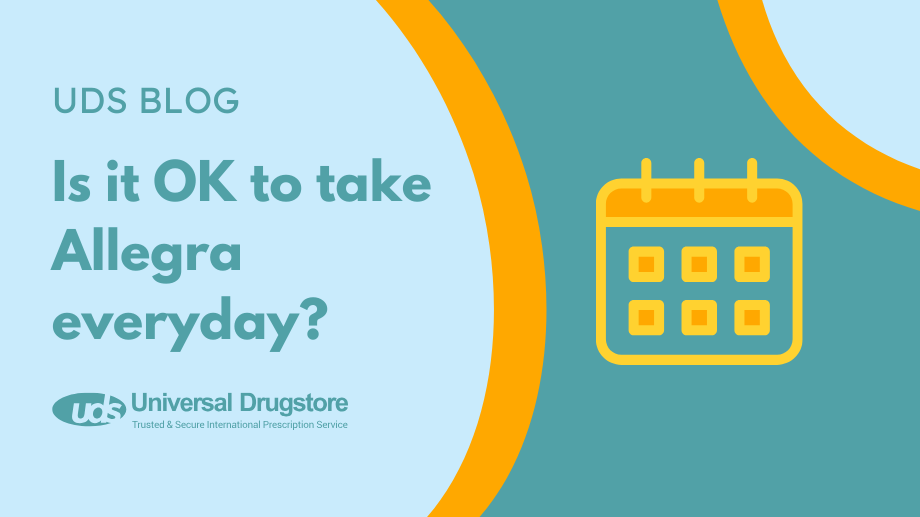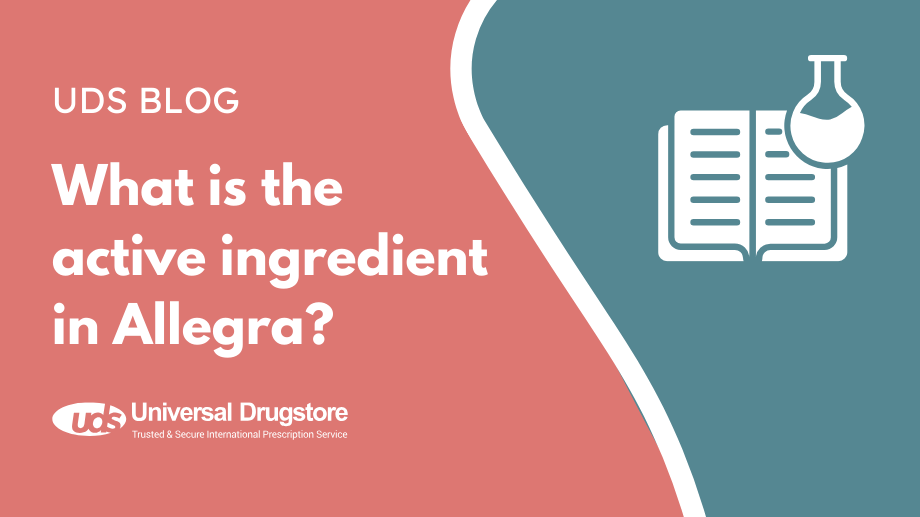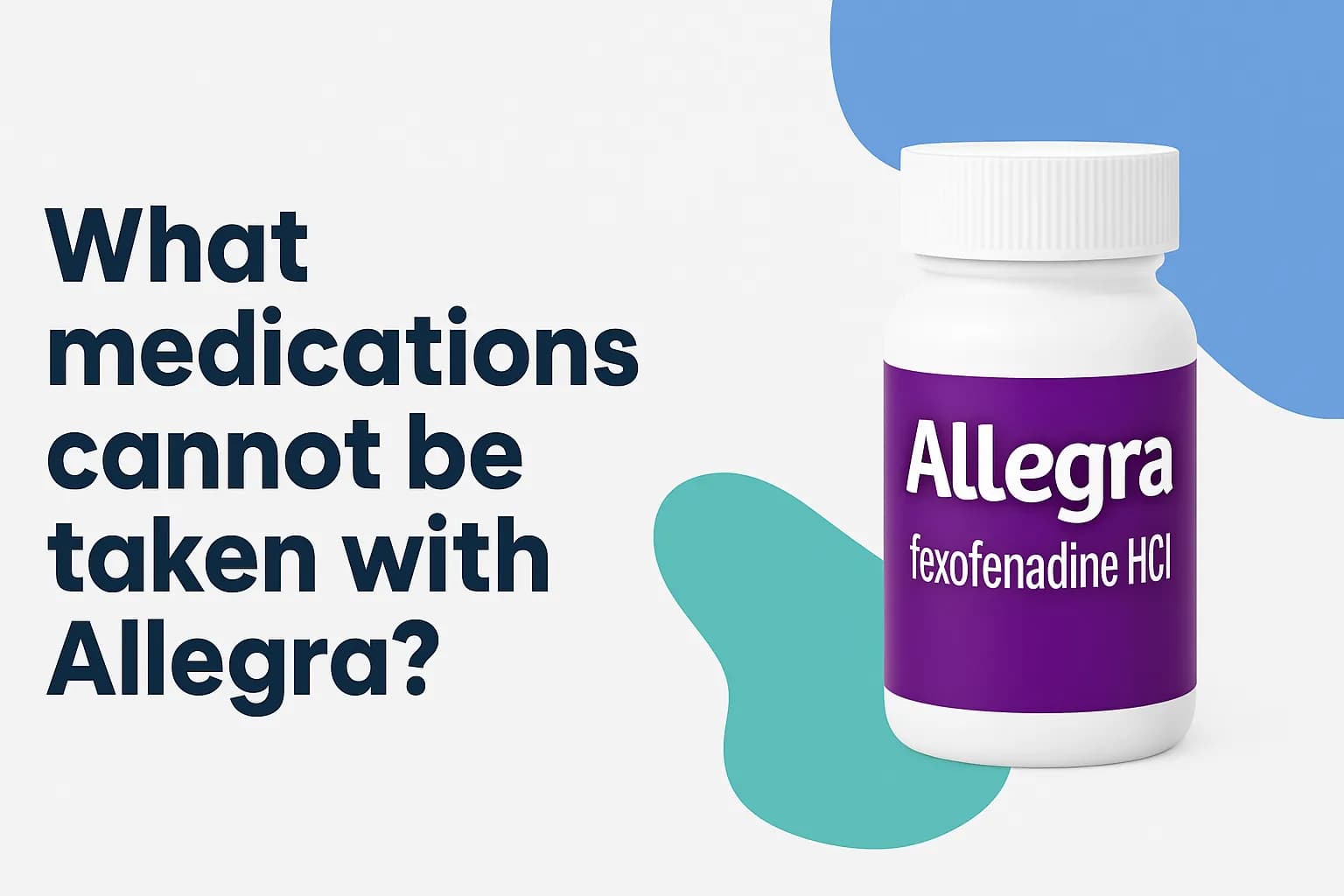Is it OK to take Allegra every day?

Allegra (fexofenadine) is one of the most commonly used antihistamines for hay fever and seasonal allergy symptoms such as sneezing, runny nose, and watery or itchy eyes. Some people may only need allergy medications like Allegra occasionally during allergy season. But for people with year-round symptoms, taking Allegra every day may be necessary for allergy relief and it’s generally safe.
However, the long-term use of antihistamine products that also contain decongestants such as pseudoephedrine might not be suitable if you have high blood pressure, an overactive thyroid, or heart problems. These meds, which include brand names such as Benadryl-D, Allegra-D, or Claritin-D are typically taken if you have sinus pressure or nasal congestion along with other symptoms.
If you are having problems with allergies, be sure to talk to your healthcare provider or an allergist before starting any medication. They can go over your options, which can include antihistamines, corticosteroids, immunotherapy (allergy shots), or other treatments.
What are antihistamines?
Antihistamines are a class of allergy medicines that work by blocking histamine receptors. Histamine is a chemical made by your immune system in response to common allergens or irritants like dust, pollen, mold, ragweed, pet dander, latex, insect bites or stings, or certain foods. The release of too much histamine can cause symptoms of allergic rhinitis like sneezing, coughing, runny nose, congestion, and itchy or watery eyes. It can also cause severe allergic reactions such as hives (urticaria), swelling, and shortness of breath.
Antihistamines are typically classified into 2 groups:
- First-generation antihistamines or sedating antihistamines are known to cause drowsiness and fatigue. These older medications include Benadryl (diphenhydramine) and Chlor-Trimeton (chlorpheniramine). Some other side effects they can cause include constipation, dry mouth, and difficulty passing urine. They may also cause serious side effects in older adults including an increased risk of falls and dementia.
- Second-generation antihistamines or non-sedating antihistamines are less likely to cause drowsiness and fatigue. Because of this, they are generally considered safer to use long-term. Some examples include Allegra (fexofenadine), Zyrtec (cetirizine), Claritin (loratadine), Xyzal (levocetirizine), and Clarinex (desloratadine).
Antihistamines come in many FDA-approved dosage forms including oral pills, nasal sprays, and eye drops. Oral antihistamines such as Allegra will typically begin to work within 30 minutes and reach their maximum effect within 2 hours. To be most effective, you may want to start taking them 2 to 4 weeks before you think your allergy symptoms will begin. Antihistamine eye drops for itchy or watery eyes will begin to work immediately but you may have to take them more than once a day. Antihistamine nasal sprays will typically start to work within 30 minutes to an hour. This is an advantage over steroid nasal sprays, which can take a few days to kick in.
Many antihistamine products are available over-the-counter (OTC), but some still require prescriptions.
Are there any risks associated with taking Allegra every day?
Allegra (fexofenadine) is an over-the-counter (OTC) antihistamine taken to relieve allergy symptoms. While it is generally well tolerated, it may cause some side effects.
The most common side effects of Allegra include headache, dry mouth, and indigestion. Some other possible side effects include drowsiness, fatigue, dizziness, and back pain. It is rare, but you could also have an allergic reaction to Allegra.
Talk to your healthcare provider for medical advice about Allegra if you have kidney disease. The active ingredient in Allegra, fexofenadine, is cleared from your body by your kidneys. So if they are not working well, Allegra can build up in your bloodstream and increase your risk of side effects, like headaches, drowsiness, and dry mouth. Your healthcare provider will determine if you need a lower dose of this medication.
Be sure to let your healthcare provider know if you are pregnant or breastfeeding. Allegra is likely safe for humans during pregnancy, but some animal studies have suggested some risks. Studies in women also suggest that this medication poses minimal risk to your infant when used during breastfeeding.
Also, tell your healthcare provider about any prescription and over-the-counter (OTC) medications and supplements you are taking so they can check for any drug interactions.
How much Allegra can I take a day?
Typically, the maximum dose of Allegra is between 120 mg to 180 mg daily for adults, depending on which product you are taking. The maximum daily dose and age range of Allegra for children also differ depending on the product being used. Be sure to follow the instructions on the manufacturer’s box or label for specific directions. However, if your healthcare provider prescribes a different dose than what is on the manufacturer’s label, follow their instructions instead.
Can you take Allegra and Benadryl together?
No, you should not take Allegra and Benadryl together unless your healthcare provider tells you to. They are both antihistamines and taking them together can increase your risk of side effects such as drowsiness, headache, dizziness, and dry mouth. It may also lead to an antihistamine overdose as well. Symptoms of an overdose include fast heart rate, dry mouth, increased drowsiness, blurred vision, nausea, vomiting, confusion, and loss of balance. In a severe overdose, you can have serious complications such as trouble breathing, cardiac arrest, seizures, and death. If someone has overdosed and has severe symptoms such as passing out, seizures or trouble breathing, call 911 immediately. Otherwise, call a poison control center at 1-800-222-1222 right away.
Can you take Allegra and Mucinex together?
Depending on the Mucinex product, you might be able to take them together. Plain Mucinex and Mucinex DM that do not contain an antihistamine are generally considered safe to take with Allegra. However, some of their combination products contain an antihistamine and you should not take another antihistamine if you are already taking Allegra. Ask your healthcare provider or pharmacist if you are not sure if you can take a specific Mucinex product with Allegra.
Related Medications
- Flonase Nasal Spray (fluticasone propionate)
- Nasacort Allergy 24 Hour (triamcinolone acetonide)
- Nasonex Nasal Spray (mometasone)
- Claritin RediTabs (loratadine ODT)
- Zyrtec-D (cetirizine/pseudoephedrine)
- Allegra-D (fexofenadine/pseudoephedrine)
Sources
- Andersson, N. W., et al. (2020). Association between fexofenadine use during pregnancy and fetal outcomes. JAMA Pediatrics. Accessed June 10, 2024.
- What medicine can I take for allergies while I’m pregnant? The American College of Obstetricians and Gynecologists. Accessed June 10, 2024.
- Fein MN, Fischer DA, O’Keefe AW, Sussman GL. CSACI position statement: Newer generation H1-antihistamines are safer than first-generation H1-antihistamines and should be the first-line antihistamines for the treatment of allergic rhinitis and urticaria. Allergy Asthma Clin Immunol. 2019;15:61. doi:10.1186/s13223-019-0375-9. Accessed June 10, 2024.
- Antihistamines for allergies. U.S. National Library of Medicine MedlinePlus. June 10, 2024.
- Huang, C., et al. (2019). Antihistamine effects and safety of fexofenadine: A systematic review and meta-analysis of randomized controlled trials. BMC Pharmacology and Toxicology. Accessed June 10, 2024.
- Allegra. Medscape. Accessed June 10, 2024.
- Allegra Package Insert. Sanofi. Accessed June 10, 2024.







